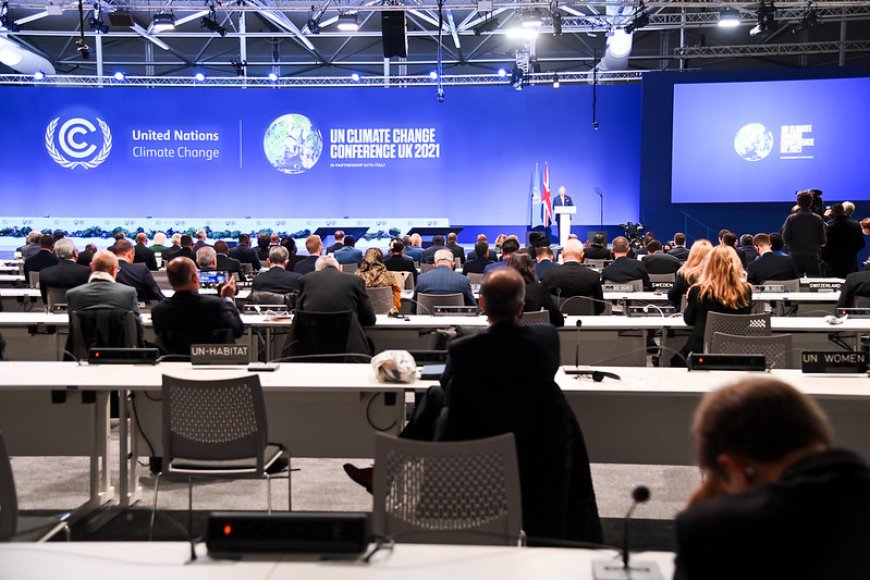Africa needs to approach COP26 insisting on its right to become a producer of green technologies and products and not continue to be relegated to the role of being a mere consumer of products produced elsewhere.
Read full here.
Africa needs to approach COP26 insisting on its right to become a producer of green technologies and products and not continue to be relegated to the role of being a mere consumer of products produced elsewhere.
Read full here.
Where in the global dialogue is the aspiration for adaptation, equitable climate finance and inclusivity? What practical actions will the global community take to address these cardinal objectives? For African countries - which have contributed least to climate change but remain most vulnerable to its impacts - these objectives are as important as net-zero ambitions.
Read full here.

Photograph: Karwai Tang/ UK Government via Flickr, CC BY-NC-ND 2.0
The exclusion of indigenous knowledge practitioners from climate planning and action has direct implications on the consistency and reliability of “scientific” forecasts.
Read full here.
If African economies are to develop, energy access and intensity need to improve drastically, and Africa should be allowed to use all its energy sources to achieve this.
Read full here.
In addition to mounting pressure on developed countries to meet their pledged climate finance contributions, African countries need to think strategically and collectively about how best to mobilize funds outside the UNFCCC system.
Read full here.
This article discusses the key COP26 outcomes for Africa with a focus on ‘Adaptation’, ‘Loss and damage’, ‘Mitigation’, ‘Market and non-market mechanism’ and ‘Finance’ and sheds light on how COP26 provides an important springboard to achieving higher level ambitions in the Africa COP27.
Read full here.
APRI does not take institutional positions on public policy issues. The views expressed in publications are those of the author(s) and do not necessarily reflect the views of APRI, its staff, or its board.